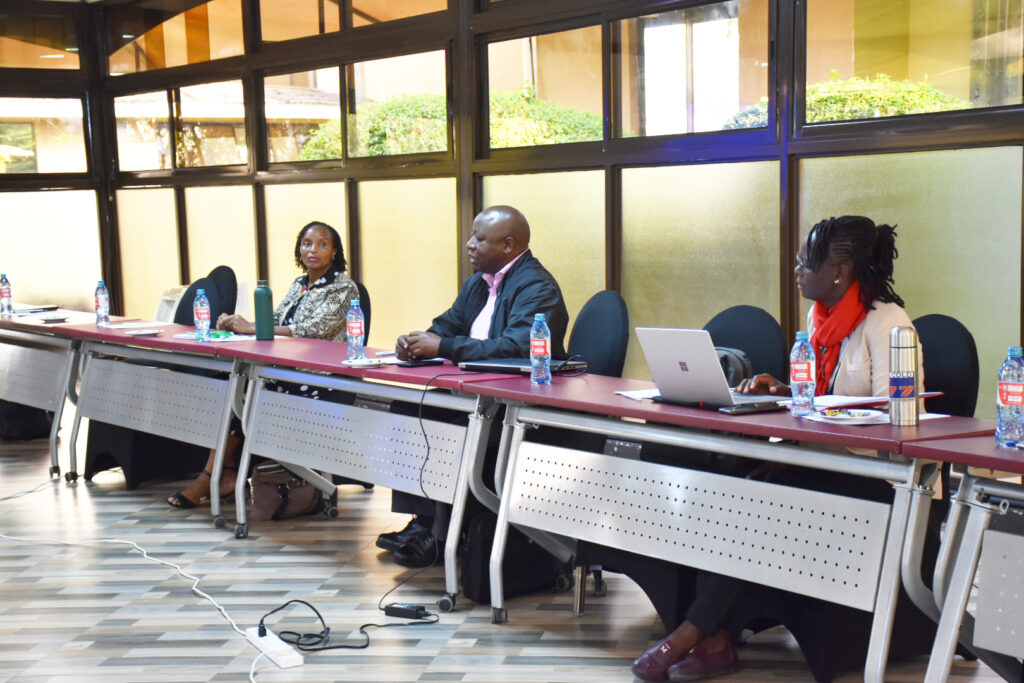
CONCEPT NOTE
INTERNATIONAL TRAINING ON CLIMATE CHANGE NEGOTIATIONS FOR AGRICULTURE STAKEHOLDERS
COURSE BACKGROUND
Climate change is an urgent global issue with profound implications for agriculture, food systems, and rural livelihoods. Negotiations under the United Nations Framework Convention on Climate Change (UNFCCC) and the Paris Agreement shape the global response to climate challenges, influencing national strategies and sectoral policies—especially in agriculture. For stakeholders involved in these negotiations, a thorough understanding of multilateral processes, structures, and techniques is essential to advocate effectively and shape decisions that reflect agricultural priorities and realities.
This course is designed to equip policy-makers and practitioners with the foundational knowledge and practical tools required to participate in international climate negotiations, particularly those related to agriculture. It supports the onboarding of new national delegation members and enhances the strategic engagement of stakeholders in advancing climate-resilient agriculture through international cooperation.
COURSE OBJECTIVES OF THE TRAINING
By the end of this course, participants will be able to:
- Understand the historical evolution and significance of global climate negotiations under the UNFCCC and the Paris Agreement.
- Identify the roles and responsibilities of key UNFCCC bodies and stakeholder groups.
- Navigate the structure and processes of climate negotiation forums and decision-making.
- Develop and communicate informed negotiation positions relevant to agriculture.
- Apply essential negotiation skills to effectively represent agricultural interests in climate forums.
WHAT YOU WILL LEARN
Participants will gain:
- A foundational understanding of global climate negotiation frameworks and the specific relevance of agriculture in those discussions.
- Familiarity with UNFCCC bodies, negotiation cycles, and stakeholder engagement mechanisms.
- An introduction to core negotiation principles, including preparation of country positions, alliance-building, and communication.
- Practical skills in navigating formal and informal negotiation settings.
DURATION AND PROGRAM
TARGET PARTICIPANTS
This course is intended for policy-makers, government officials, climate advisors, and practitioners engaged in or preparing to participate in UNFCCC-related negotiations. It is particularly beneficial for new members of national delegations to climate negotiations, as well as agriculture sector representatives, technical experts, and stakeholders from ministries of environment, agriculture, or foreign affairs who are involved in shaping climate policy or representing national positions in international forums.
TRAINING MODULES
| No | Module | Details | |
| 1. | A Multilateral Approach to Fighting Climate change |
This module sets the stage with a historical overview of global climate change negotiations. It introduces the multilateral agreements, including the UNFCCC and the Paris Agreement, and examines their implications for agriculture.
The key topics include:
|
|
| 2. | UNFCCC Structures and Meetings |
Participants are introduced to the organizational architecture of the UNFCCC, including the key bodies, committees, and platforms that influence decisions relevant to climate and agriculture.
The key topics include:
|
|
| 3. | Negotiating and Reaching Agreement under the UNFCCC |
This module explains how negotiations unfold under the UNFCCC, including the procedural steps, the role of negotiation groups, and how country positions are formed and advanced.
The key topics include:
|
|
| 4. | Negotiations and Negotiation Skills |
Focusing on personal and strategic negotiation techniques, this module equips participants with soft and hard skills needed to navigate negotiations, build consensus, and influence outcomes.
The key topics include:
|
|
TRAINING STYLE
The modules will be taught through PowerPoint presentations, and lectures and will include a case study/field visit, breakout sessions, case studies and other interactive discussion components.
The course will also include a few guest speakers, both in person and via Zoom and other online learning platforms for overseas speakers. This provides useful real-world insights alongside the more theoretical aspects of the course.
The conference faculty shall consist of experienced decision makers, as well as practitioners and representatives from established educational and research institutions active around climate change, engineering and international development. Throughout the course, theoretical presentation of concepts will be moderated and more group discussions and plenary engagements will be optimized. PowerPoint presentations will be made by facilitators and resource persons, to highlight key concepts before embarking on group work.
GENERAL NOTES
- Training manuals and additional reference materials are provided to the participants.
- Upon successful completion of this course, participants will be issued with a certificate.
- We can also do this as a tailor-made course to meet organization-wide needs. Contact us to find out more: info@ecasiafrica.org.
- Payment should be sent to our bank account before the start of training and proof of payment sent to: info@ecasiafrica.org.
ABOUT ECAS INSTITUTE
The ECAS Institute designs and delivers independent and targeted training, research, and consulting services. Our work focusses on climate change and resilience building, carbon markets, renewable energy, nature-based solution, biodiversity conservation, agriculture and food systems, We are located in Nairobi Kenya and work across the African region. We have implemented training and research assignments in Kenya, Tanzania, Uganda, South Sudan, Somalia, Malawi, Rwanda, Congo, and South Africa. Globally, we have supported our partners from the UK, Denmark, Italy, Sweden, Germany, and USA.

